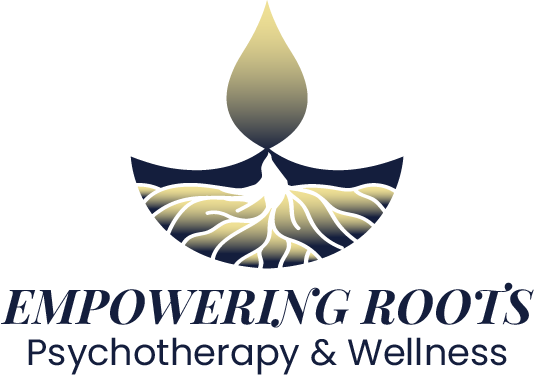Trauma Therapy in Etobicoke, ON
Do painful memories still control your present?
Do you live in a constant state of alert, waiting for the next bad thing to happen?
Does your body feel weighed down by the past?
Do you struggle with trusting others? Fear abandonment, or being judged?
Do unwanted flashbacks and intrusive thoughts keep you feeling stuck in the past?
When trauma impacts South Asian, immigrant, and BIPOC communities, healing requires more than just coping skills—it means honouring your whole story.
That includes not only the painful memories, but also your strength, resilience, and cultural identity. At Empowering Roots, we recognize the weight of generational cycles and legacy burdens passed down through families; expectations, silence, and sacrifices that can leave you feeling overwhelmed, unseen, and disconnected from your authentic self. Therapy offers a space to untangle these patterns, reclaim your voice, and begin healing in a way that honours both who you are and where you come from.
Break Free from Trauma's Hold on Your Life in Etobicoke
Trauma can feel like the past is always right behind you—showing up as flashbacks, racing thoughts, or waves of anxiety that keep you on edge. Even when you try to move forward, painful memories can resurface unexpectedly, leaving you exhausted, easily startled, or struggling to relax.
Trauma isn’t just in the mind; it often lives in the body as tension, headaches, stomach pain, or fatigue that never seems to go away. Over time, this constant vigilance can affect your sleep, concentration, relationships, and overall well-being, leaving you wondering if you’ll ever truly feel safe again.
If this feels familiar, trauma therapy in Etobicoke can help you find relief and reconnect with yourself.
For many South Asian and immigrant families, trauma is often something you’re expected to handle alone. You may have been told to “be strong,” “just move on,” or “be grateful for what you have.” But trauma doesn’t follow cultural expectations, and healing requires more than willpower.
Trauma is not always one event; it can also be the weight of silence, unspoken expectations, conditional love, sacrifice, or not being allowed to feel. These ongoing experiences can be just as impactful as single traumatic events, creating deep wounds that shape how you see yourself and move through the world. We recognize that healing happens when both your personal story and your cultural identity are honoured.
At Empowering Roots, we understand that trauma in South Asian, BIPOC, and immigrant communities can come from many sources: immigration stress, discrimination, family conflict, childhood experiences that were never addressed, and the legacy of intergenerational trauma. Our approach to trauma therapy in Etobicoke is trauma-informed, culturally sensitive, and focused on helping you rebuild safety and connection.
Together, we work at a pace that feels right for you, using grounding strategies, somatic practices, and evidence-based approaches such as CBT, DBT, and IFS to help you process memories, release tension, and reconnect with yourself.
Healing doesn’t mean “just moving on”; it means finding a space where your pain is acknowledged, your resilience is recognized, and your journey is fully supported.
Trauma Therapy Can Help With
Rebuilding Safety and Trust
Learn to feel safe in your body and relationships while processing difficult experiences at your own pace.
Processing Deep Emotional Pain
Work through trauma memories and feelings in a supportive space that honors your cultural background.
Reconnecting with Your Strength
Remember the resilience you already have while developing new tools for healing and growth.
It's normal to feel overwhelmed when trauma keeps affecting your daily life. Many people in our community struggle with these specific challenges:
Trauma Therapy for Deep Emotional Wounds
Overcoming Cultural Silence Around Trauma
Trauma can make it hard to meet family expectations around strength and resilience. You might feel pressure to "get over it" while struggling with symptoms that others don't understand.
Processing Painful Memories Safely
Trauma creates intense emotions like fear, anger, and shame that can feel overwhelming. These feelings need proper attention, not cultural pressure to "just forget" what happened.
Reconnecting with Your True Self
Trauma can make you feel disconnected from who you really are. You might struggle to recognize yourself or feel like you're just surviving instead of truly living.
How Trauma Therapy Transforms Your Life
Unlike traditional talk therapy, trauma-focused approaches help you process difficult experiences more efficiently, leading to lasting relief from symptoms.
Processing Trauma Without Retraumatization
Specialized trauma techniques help you heal from painful experiences without having to relive every detail, using methods that respect your cultural values.
Breaking Trauma Response Patterns
Stop the cycles of hypervigilance, emotional numbness, and avoidance that trauma creates, replacing them with healthy coping strategies and emotional regulation.
Sustainable Recovery
Trauma therapy helps you process experiences thoroughly so they no longer control your daily life, relationships, or sense of safety.
Focused Healing Time
Trauma-focused therapy gives you dedicated space to address your experiences without the distractions and cultural pressures of daily life.
Culturally Informed Trauma Treatment That Actually Works
I know that traditional trauma therapy doesn't always address the unique experiences of South Asian and immigrant communities. That's why I've developed an approach that honours both evidence-based healing methods and cultural understanding.
Through culturally informed therapy using IFS (parts work), somatic approaches, and trauma-focused CBT, we'll work together to process your experiences without abandoning your cultural values. My approach recognizes that healing doesn't mean forgetting your heritage, it means finding peace within your whole story.
I understand the pressure to stay silent about family issues, the shame that can come with seeking help, and the challenge of balancing individual healing with collective family well-being. Together, we'll create a path forward that honours all parts of your identity.
South Asian Trauma Specialist in Etobicoke Who Gets Your Story
As someone who understands both the clinical aspects of trauma and the unique cultural pressures facing our community, I provide a space where you don't have to explain your background, I already get it.
I've worked with many South Asian and immigrant clients who struggle with trauma while trying to maintain family relationships and cultural values. I know that healing looks different for everyone, and I'm committed to helping you find an approach that feels authentic to you.
My training in trauma-focused therapies, combined with my understanding of cultural dynamics, allows me to provide support that truly fits your needs and honours your heritage.
Common Questions about Trauma Therapy
It's normal to feel unsure or have questions. Here are some common concerns, so you can feel more at ease about taking this step.
What makes trauma therapy different from regular therapy?
Trauma therapy uses specific techniques designed to help your nervous system process difficult experiences safely. We focus on helping your body and mind understand that you're safe now, while honoring your cultural values and beliefs.
Will I have to relive traumatic experiences in detail?
No. Effective trauma therapy doesn't require you to retell every detail of what happened. We work at your pace and focus on helping you process emotions and memories in a way that feels manageable and safe.
How do I know if my experiences count as trauma?
If past experiences are affecting your daily life, relationships, or sense of safety, they're worth addressing in therapy. You don't need to prove your trauma to deserve support and healing.




